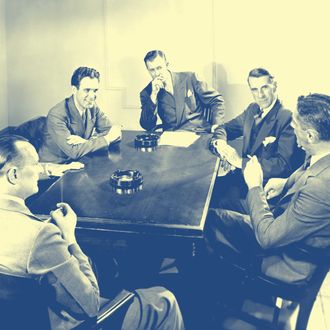
So maybe you didn’t really get a glimpse of Drake during New Year’s in Vegas; that actually happened to your cousin. As it turns out, passing off someone else’s memories as your own is fairly common, at least among the undergraduate participants of a new study published in Applied Cognitive Psychology.
In it, Southern Methodist University psychology professor Alan S. Brown had 447 college students take an online survey about their story-stealing habits. First, a quick and obvious caveat: Researchers couldn’t verify that these students were answering truthfully. That in mind, here’s what he and the rest of the researchers found:
- 53 percent of participants have heard someone else telling a story that had been stolen from them.
- 46 percent admitted hearing someone’s story and later passing it off as their own.
- 32 percent have spiced up their own anecdotes with details stolen from someone else.
The fact that more than half of the respondents had caught someone “borrowing” their own personal memory suggests that it’s incredibly easy to lose track of where our memories actually originate; no one would intentionally tell a stolen story in front of the person they stole it from. And this, the researchers argue, helps add to our understanding of how false memories are created.
Brown also asked the students to justify or explain their story plagiarism, and their reasons are pretty much what you’d expect: Some of the students said they’d heard the story so many times they’d started to think of it as their own. Some said they were trying to impress their audience; others admitted they just liked the story, and so they took it. And some argued that a story is just more entertaining when told in the first person, regardless of its veracity. Isn’t that right, Brian Williams?




